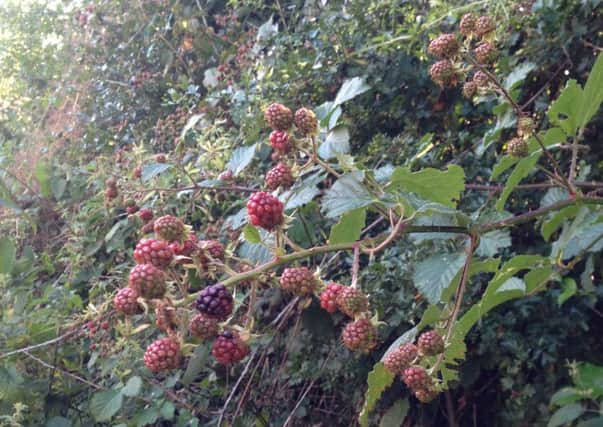Lucy Oates: Blooming meadows as cuckoos check out


I’d been watching the progress of a greylag goose that had built her nest on a small island in the centre of a pond. She would stoop low and sit motionless as I wandered past, clearly aware of my presence and doing her best to blend in with the undergrowth. I eagerly awaited the day when I’d see her tending to her goslings or leading them to the water’s edge for the first time. Sadly, it wasn’t to be.
One day I noticed that the nest was empty but there was no sign of the goose or her young. I spotted a small flock of adult greylag geese feeding in the meadow nearby a couple of days later, but the female never returned to the nest. I don’t know if her eggs failed to hatch or her young fell prey to a predator. It’s a shame that her efforts appear to have been in vain.
Advertisement
Hide AdAdvertisement
Hide AdThankfully, elsewhere there’s plenty of evidence of new life. Whilst walking through some pasture, I suddenly became aware of a high pitched cheeping noise and saw a tiny duckling - no more than a day or two old - in the grass right under the nose of my German Shepherd. Thankfully, Wolfie is a gentle giant and gave the noisy little creature nothing more than a puzzled glance. Its anxious mother was calling to it from the safety of a nearby hedgerow, so we quickly got out of the way to let her round up her wayward offspring.
In a stream lined with vivid yellow irises and delicate mauve milkmaids, sometimes known as Lady’s Smock or Cuckoo Flower, I saw a spawning female Common Toad and a frenzied cluster of males competing to fertilise her eggs. The eggs are coated in jelly and released in long double strands, which become tangled around the surrounding weed.
From a distance, I saw a roe deer in a meadow full of buttercups and realised that she had a young fawn at her feet. I stayed well away to avoid disturbing them, but it was a beautiful and quintessentially English scene.
As the dogs carve tracks through the waist-high grass in the meadow, plumes of pollen rise up from the heavy grass seed heads. In the wood, delicate pink and white dog roses intertwine with fragrant wild honeysuckle, rambling freely over decaying tree stumps and reaching upwards towards the treetops. The frothy elderflower blooms that lined the hedgerows just a few weeks ago have been replaced with clusters of berries that are just starting to turn from green to purple. I notice that the brambles, or blackberries, are ripening much earlier than in recent years, probably because of the spell of good weather and balmy temperatures. It will soon be time to head out with my basket to collect them. Some I’ll turn into a compote to eat now over ice cream or with yoghurt, and the rest will be frozen to make crumbles and other hearty puddings during the winter months.
Advertisement
Hide AdAdvertisement
Hide AdOn these warm summer days we’ve noticed buzzards soaring on the warm air currents high above the village. On one occasion we counted six; an amazing sight.
During May and June, I heard the unmistakable call of the cuckoo on a daily basis. For as long as I can remember, they have returned to a copse of trees that fringes a stretch of disused railway line just a short walk down the lane from our house. The recent silence suggests that they’ve begun their long migration towards Africa, but it’s pleasing to know that cuckoos still return to the same spot, particularly given that they’re a species in decline.